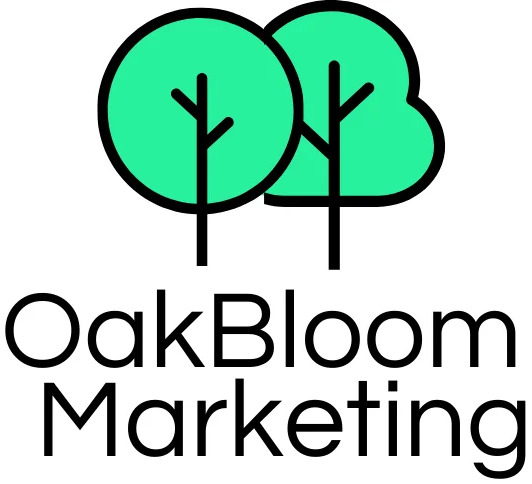You may be part of the club no one wants to join, but nearly everyone belongs to: Imposter Syndrome. If you’ve ever thought…
“I’m not qualified enough.”
“They’re going to find out I’m faking it.”
“Why would anyone listen to me?”
If you’ve ever thought those things, even while others were praising your work, you’ve got the syndrome.
I know it intimately. I’ve run successful campaigns, built powerhouse brands, and led high-stakes meetings. But I’ve also stared at my screen, paralyzed before a pitch, wondering if I’d fooled everyone into thinking I knew what I was doing. Even now, as a founder, brand strategist, and coach, I still hear the whispers: “Who do you think you are?”
And I’m not alone. According to a Kajabi study, 84% of U.S. entrepreneurs experience imposter syndrome. And a Korn Ferry report found that 71% of CEOs feel it too. Yes, CEOs.
So if you’ve felt it, know this: Imposter syndrome doesn’t mean you’re weak. It means you care. You’re growing. You’re stretching beyond your comfort zone. But you don’t have to stay stuck there.
Here’s how I’ve learned to dismantle imposter syndrome—and how you can, too.
6 Actionable Steps to Overcome Imposter Syndrome (+Carousel)
Step 1: Recognize the Lies
Imposter syndrome isn’t the truth. It’s a pattern of distorted thoughts that shows up when you’re expanding your identity, taking risks, or doing something meaningful. Here’s how it often sounds: “I got lucky.” “If I were really smart, I’d be further along.” “They’re going to realize I don’t actually belong.”
Sound familiar? Before you can change the script, you have to notice it’s playing. When those thoughts hit, pause and label them: “That’s imposter syndrome talking.” Naming it loosens its grip.
Step 2: Reframe the Narrative
Once you spot the pattern, it’s time to rewrite it. Here are three quick reframes that have helped me:
- From “I’m not qualified” to “I’ve built years of experience and people trust me for a reason.”
- From “I’m not ready” to “Nobody feels fully ready. I’m stepping up anyway.”
- From “This has to be perfect” to “Progress beats perfection. Every. Time.”
I’ve coached dozens of high-achieving leaders through this mental pivot. And the truth is, it’s not about silencing fear. It’s about leading anyway.
Step 3: Celebrate Your Wins Like Receipts
If you’re anything like me, you move fast. You achieve something… and immediately focus on the next thing. But here’s the problem: if you never internalize your wins, your brain forgets you even had them.
That’s why I started keeping a Praise Folder. Mine has screenshots of client feedback, notes from peers, LinkedIn comments that made me tear up, anything that reminds me I do good work. So when the doubt creeps in, I don’t rely on memory. I pull the receipts.
Step 4: Practice Self-Compassion (Even When It Feels Cheesy)
This one took me a while to embrace. I thought self-compassion was soft. Woo-woo. Turns out, it’s rocket fuel for resilience. Research shows that people who practice self-compassion are more likely to bounce back from failure, try again, and succeed in the long run.
Here’s what that can look like: Saying “thank you” instead of deflecting a compliment. Affirmations like “I am worthy of my success” (yes, speak it out loud—even if your dog is the only one listening). Rewarding yourself for effort, not just outcomes. You don’t need to “earn” rest, joy, or recognition. You are already enough.
Step 5: Say It Out Loud
I used to think that if I admitted my imposter feelings, it would confirm them. But the opposite happened. Every time I opened up about it—to a mentor, a friend, a client—they said some version of: “Oh my god, me too.” Talking about imposter syndrome shrinks its power. It builds a connection. It reminds you: You’re not alone. You’re just human. If you don’t have a safe space to move beyond these things, create one. Or come join mine.
Step 6: Surround Yourself with Expansive People
One of the biggest shifts I’ve made was being intentional about who I spend time with. I seek out people who:
- Celebrate growth over ego
- Call me forward, not just call me out
- Aren’t afraid to say, “Me too, but let’s keep going anyway.”
That’s exactly why I created The Level-Up Club (TLC)—a community of high-achieving, heart-led leaders who are done trying to go it alone.
Inside TLC, we work on personal brand strategy that reflects the real you, use AI tools to save time, scale impact, and show up with clarity, get honest about mindset blocks—and move through them together, and cheer each other on, even when we’re scared (especially when we’re scared). We normalize self-doubt, but we don’t let it drive.
Want in? Join here. Or, grab your free LinkedIn Profile Optimization Guide to start building a more confident online presence today.
Imposter syndrome isn’t a sign you’re not ready. It’s a sign you’re growing. And while the voice of doubt might never disappear completely, it doesn’t have to lead your life or business. You are not an imposter. You are becoming. And I see you.
Jeanel Carlson is Brand Strategist & Founder of OakBloom Marketing. Helping leaders own their story, show up boldly, and build magnetic brands—inside and out.









